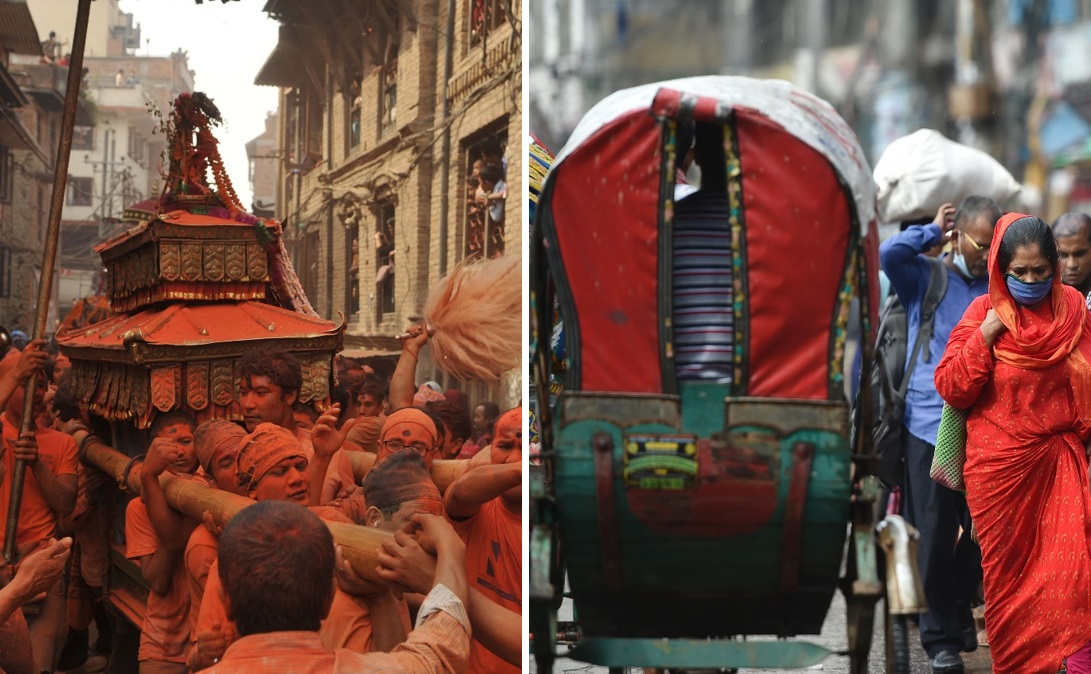India’s neighbourhood is developing. Literally. The United Nations Committee for Development Policy recommended recently that both Bangladesh and Nepal should be elevated to the status of developing countries from the current Least Developing Country (LDC) status.
There is much happiness in the two South Asian countries coupled with trepidation as it brings about numerous governance challenges besides the prestige.
Bangladeshi Prime Minister Sheikh Hasina even held a virtual press conference in Dhaka to announce this decision. She said: "It's a historic event for Bangladesh," adding that the transition from LDC to a developing nation is a matter of great pride on the occasion of the golden jubilee of Bangladesh.
This is the second time that Bangladesh has met all three eligibility criteria for moving up from LDC to a developing country. The three criteria include – income per capita, human assets and economic and environmental vulnerability. The human assets includes health, and nutrition index and also the education index.
Earlier in 2018 too Bangladesh had been recommended to be shifted up.
Now Bangladesh has five years to make the change, therefore, will get its coveted status only in 2026. It has its benefits as well as its pitfalls due to which many countries postpone the decision to move up. It stands to lose privileges like subsidies for agriculture, support to start-up industries and revenue losses in exports. The change also means that it will lose donor funding and international aid.
Debapriya Bhattacharya, a member of the UNCDP and a distinguished fellow of the Centre for Policy Dialogue (CPD) told The Daily Star: "The exit of a country from the LDC group essentially means acquiring a seal of global approval regarding its development achievements. This is supposed to lead to, among others, enhanced confidence of the international financial actors regarding the markets of the concerned country. This implies reduced cost of international borrowing due to improved perception about country-level market risks…"
It is the same story for Nepal too, which had achieved its status even earlier than Bangladesh – way back in 2015. However, due to the negative impact of the 2015 earthquake, the government made an appeal to the UN body to defer the change in status.
As the status change for Nepal has been in discussion for long, the policy makers have been working on charting out the progress for the country. Way back at the beginning of the decade, the National Planning Commission had even drafted an Approach Paper to graduating from LDC status to that of a developing country by 2022. However, that roadmap got derailed earlier due to the 2015 earthquake.
Once again, the Nepalese planning commission drafted a national strategy in December 2020. This one lays focus on trade and investment owing to the fact that of the three criteria, Nepal has not met the income threshold criteria.
Nepal faces the coronavirus pandemic and its planners also realise that it is vulnerable to the effects of climate change. In a detailed assessement, The Kathmandu Times lists out the challenges: "In order to make this recommendation irreversible during the review after three years, Nepal has to meet several challenges to make the economy stable and, first and foremost, chart out a national level strategy…"
Gyan Chandra Acharya, former UN under secretary-general and High Representative for the Least Developed Countries, Landlocked Developing Countries and Small Island Developing States (UN-OHRLLS) told the newspaper: “Nepal should start immediate negotiations with the EU, India, China, Japan and other countries so that our trade will not be hampered,”
While Bangladesh plans to take on the challenge of the status change headon, the mood in Nepal is a bit cautious. The landlocked country is looking at better grappling with climate change issues as well as boosting economic growth.
Sri Lanka, another of India's close neighbours has enjoyed a high developmental status due to a better human development index and a high literacy rate, which has been even better than some of the developed countries.
The recommendations by the UN committee will now be sent to the United Nations Economic and Social Council (ECOSOC) for ratification in June and finally to the UN General Assembly in September this year.




















